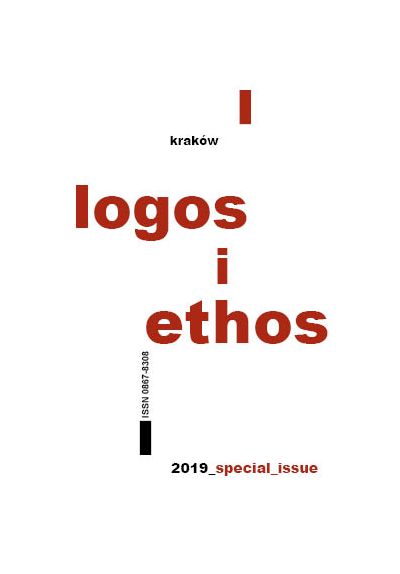Gogacz – Judycki. Two concepts of the individuality of a human person
DOI:
https://doi.org/10.15633/lie.3469Keywords:
pluralism, dualism, human, individuality, Thomism, PhenomenologyAbstract
The aim of the article is presentation of two concepts of human individuality which have arisen in modern Polish philosophy of Mieczysław Gogacz and Stanisław Judycki. It is an attempt to look at the problem from two different philosophical perspectives: Thomistic metaphysics and phenomenological epistemology. Metaphysical approach is searching for an answer to the question about human individuality in their ontic structure, whereas phenomenological approach focuses on the analysis of a direct experience. As reason of individuality, Gogacz indicates potential intellect (passive) subjected in a substantial form (soul). Judycki maintains that this reason is the concept of God, according to whom He creates a soul of every human being as radically different from all other human souls, unique. Presented theories develop from a different way of understanding a human being. Gogacz’s theory has a substantial character, refers to the concept of a human of Aristotle, Boethius and St. Thomas Aquinas. Judycki’s concept is a relational approach, modified by elements of substantialist philosophy. He refers to relational approach of Plato, Saint Augustine and Descartes as well as substantialist theories of Aristotle and St. Thomas Aquinas. Thomistic and phenomenological approaches to individuality introduce fundamentally different and essential substance to philosophy concerning human beings.
References
Gogacz M., Elementarz metafizyki, Warszawa 1998.
Gogacz M., Istnieć i poznawać, Warszawa 1976.
Gogacz M., Wokół problemu osoby, Warszawa 1974.
Gogacz M., Wprowadzenie do etyki chronienia osób, Warszawa 1998.
Judycki S., Bóg i inne osoby. Próba z zakresu teologii filozoficznej, Poznań 2010.
Judycki S., Świadomość i pamięć. Uzasadnienie dualizmu antropologicznego, Lublin 2004.
Kijewska A., Filozof i jego muzy. Antropologia Boecjusza – jej źródła i recepcja, Kęty 2011.
Krąpiec M. A., Zagadnienie jednostkowienia bytów materialnych, „Roczniki Filozoficzne” 1958, vol. 6 bull. 1, pp. 97–148.
Stępień A. B., Wprowadzenie do metafizyki, Kraków 1964.
Tomasz z Akwinu, Traktat o człowieku. Suma teologii 1,75–89, trans. and ed. S. Swieżawski, Kęty 1998.
Wojtyła K., „Osoba i czyn” oraz inne studia antropologiczne, Lublin 2000.
Ziemiński I., Życie wieczne. Przyczynek do eschatologii filozoficznej, Kraków–Poznań 2013.
Judycki S., Samoświadomość i unikalność osób ludzkich, http://www.kul.pl/materialy-do-pobrania,art_19301.html (02.04.2014).
Thomas Aquinas, Contra Gentiles. On the Truth of the Catholic Faith, Book Two: Creation, translated by James F. Anderson, New York, 1955–57, http://dhspriory.org/thomas/ContraGentiles2.htm#81 (02.04.2014).
Downloads
Published
Issue
Section
License
Copyright (c) 2020 Bożena Listkowska

This work is licensed under a Creative Commons Attribution 4.0 International License.
Authors who publish with this journal agree to the following terms:
- Authors retain the copyright and full publishing rights without restrictions, and grant the journal right of first publication with the work simultaneously licensed under a Creative Commons Attribution 4.0 International License that allows others to share the work with an acknowledgement of the work's authorship and initial publication in this journal.
- Authors are able to enter into separate, additional contractual arrangements for the non-exclusive distribution of the journal's published version of the work (e.g., post it to an institutional repository or publish it in a book), with an acknowledgement of its initial publication in this journal.
- Authors are permitted and encouraged to post their work online (e.g., in institutional repositories or on their website) prior to and during the submission process, as it can lead to productive exchanges, as well as earlier and greater citation of published work (See The Effect of Open Access).

